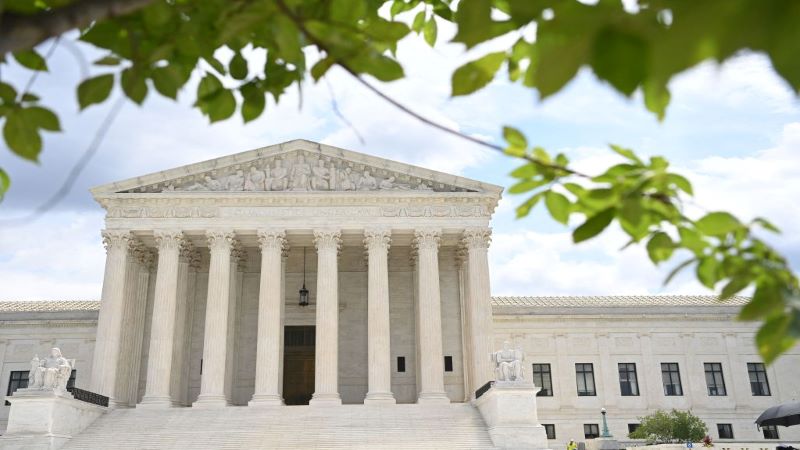
With its Prometheus decision, the U.S. Supreme Court centered agency deference in reasonableness.
Policy is not settled quickly in communications law. The 1996 Telecommunications Act required incumbent telecommunications carriers to open their networks to competitors on regulated terms. It took more than a decade, two trips to the Supreme Court, and several trips to the Court of Appeals for the D.C. Circuit to ascertain the meaning of this statutory requirement. The story is similar to the Federal Communications Commission’s (FCC) efforts since 1998 to fit consumer internet service into the same Telecommunications Act’s statutory framework, resulting in repeated trips to the Courts of Appeals and the Supreme Court.
The Supreme Court’s unanimous opinion in FCC v. Prometheus Radio Project is the latest step in another long chapter of communications policy: the FCC’s seventeen-year effort to get congressionally mandated revisions to its media ownership rules through a single panel of the Court of Appeals for the Third Circuit. In three of four trips to the court, the same two judges of the same Third Circuit panel rejected the FCC’s efforts to update its media ownership rules as “arbitrary and capricious” because they found that the underlying record did not address their questions about the effects of the revised rules on minority and female ownership of media outlets.
But unlike the examples above, which resulted in cases—such as Iowa Utilities Board and Brand X—that are important two decades later, the Supreme Court’s holding this April in Prometheus is little more than a restatement of a basic administrative law principle that the “arbitrary-and-capricious standard requires that agency action be reasonable and reasonably explained.” The Court stated that the “agency has acted within a zone of reasonableness,” that its “analysis was reasonable and reasonably explained,” and that the FCC was not required to obtain additional empirical or statistical data.
Despite a seemingly simple resolution, Prometheus is anything but a simple case. In the background, the case involves fights over how the FCC promotes viewpoint diversity in media and, in particular, the FCC’s longstanding efforts to advance female and minority ownership of broadcasters and other media. Procedurally, the case raises questions about how agencies change or abandon longstanding policies.
And there should be additional questions, if not concerns, about how a single three-judge panel could thwart a congressionally-mandated policy review for nearly two decades based on an elementary mistake—something made even more remarkable because one of those judges consistently raised concerns about this error in dissent.
The media marketplace looked very different when Congress enacted the 1996 Telecommunications Act than it had in the years since it first adopted preferences for minority, and then for female, broadcast ownership in 1978. The country had moved from the era of three broadcast networks to one with four broadcast networks, cable and satellite television, cell phones, and the early internet. As a result, the communications marketplace was expanding rapidly and growing more competitive even before the enactment of the Telecommunications Act, which was intended to supercharge the increase in competition.
Congress adopted Section 202(h) of the Telecommunications Act with this explosive growth in competition in the background. Section 202(h) requires the FCC periodically to review “all of its ownership rules” and “determine whether any of such rules are necessary in the public interest as the result of competition.” It requires that the Commission “repeal or modify any regulation it determines to be no longer in the public interest.” Congress believed that a more competitive media marketplace and media outlets with minority or female owners would help ensure that minority, female, and other media consumers had access to media that was relevant to them.
The FCC issued a first report and order pursuant to Section 202(h) in 1999, which relaxed some of the Commission’s broadcast ownership rules. It also issued a more substantial report and order in 2003, which kicked off the Prometheus litigation. In reviewing issues relating to minority and female broadcast ownership, the FCC had found that “a more thorough exploration of these issues, which will allow” the agency “to craft specifically tailored rules that will withstand judicial scrutiny, is warranted.” The Commission declined to incorporate consideration of these issues in its 2003 report and order and, instead, planned to issue a notice of proposed rulemaking to consider them separately.
In Prometheus I, the Third Circuit found that the FCC failed “to mention anything about the effect” of the 2003 order’s changes “on potential minority station owners” and, therefore, the Commission did not provide “a reasoned analysis indicating that prior policies and standards are being deliberately changed.” The 2003 order was therefore vacated and remanded as arbitrary and capricious. The judges also felt that the FCC overweighed the effects that the internet was having on the media landscape.
Dissenting, Judge Scirica stated that “the court has applied a threshold that supplants the well-known principles of deference accorded to agency decision-making,” and the court “substituted its own policy judgment for that of the FCC.” He added that this “upset the ongoing review of broadcast media regulation mandated by Congress in the Telecommunications Act of 1996.”
The FCC attempted several more times to comply with Section 202(h)’s mandate to review its media ownership rules and to revise them, if necessary, over the subsequent 15 years. Each time, the FCC was rebuffed by the same panel of the Third Circuit. Minority and female ownership of broadcast stations remained a central issue in the FCC’s subsequent rules, and in the Third Circuit panel’s reviews and rejection of them. In each opinion, Judge Scirica expressed his concern that the other judges on the panel were looking outside of the FCC’s voluminous record or expecting the FCC to ascertain facts outside the record to address the judges’ concerns.
This process culminated in Prometheus IV, in which the Third Circuit reviewed—and again rejected—the FCC’s 2017 order. The FCC had requested comment on the effects that the 2017 rules would have on minority and female ownership and, based on the few responses that it received, concluded that those rules would “have minimal effect.” The Third Circuit disagreed that the record supported this conclusion and “directed the Commission, on remand, to ‘ascertain on record evidence’ the effect that any rule changes were likely to have on minority and female ownership, ‘whether through new empirical research or an in-depth theoretical analysis.’”
The Supreme Court’s opinion in Prometheus IV is unremarkable. It is short and unanimous, and largely restates and emphasizes basic principles of administrative law. The opinion focuses narrowly on the argument brought by the initial plaintiff, Prometheus Radio Project, that the “record evidence did not support the FCC’s predictive judgment regarding minority and female ownership” in the 2017 order.
The Court disagreed, finding that the FCC had repeatedly sought information relevant to the effects that its proposed rules would have on minority and female ownership, that only a small amount of information was entered into the record by commenters, and that the FCC adequately considered that information. As a result, the Supreme Court found that the agency’s decision did not fall “outside the zone of reasonableness for purposes of the APA.”
The opinion is perhaps most notable for what it does not address. For instance, although the Court does note, and ultimately agree with, Judge Scirica’s dissent, it does not take up his charge that the panel had supplanted the FCC’s analysis with its own policy preferences. Nor did the opinion touch on any of the First Amendment issues underlying preferences for minority and female broadcast ownership.
The omission is not surprising because the case did not require the Court to consider a constitutional issue—although in his concurring opinion, Justice Thomas takes Prometheus and the Third Circuit to task for conflating the potentially constitutionally permissible goal of viewpoint diversity with the constitutionally suspect goal of mere ownership diversity.
Similarly, as the Court notes in a footnote, because it was able to decide the case “under ordinary principles of arbitrary-and-capricious review,” it did not need to consider statutory questions of whether Section 202(h) limits the Commission’s review of its ownership rules to considerations relating to competition, potentially precluding consideration of non-competition considerations such as minority and female ownership altogether. Similarly, the Court avoided consideration of how, or whether, an agency must consider the abandonment of a former policy in the development of a new policy.
The opinion is a strong reaffirmation of the broad deference due to agencies—including when they are abandoning or changing policies. The Court held that so long as “the agency has acted within a zone of reasonableness,” and unless the court can say “that the agency’s decision to repeal or modify the ownership rules fell outside the zone of reasonableness,” the agency’s order is neither arbitrary nor capricious. Justice Kavanaugh, who wrote for the Court in Prometheus, used the same “zone of reasonableness” language in a concurring opinion in the previous term—it is a phrase that is likely to appear in future opinions, as well.
In an era of polarization and increased presidential control of even independent administrative agencies, this sub silentio affirmation that agencies are free to abandon once strongly held policy positions is an important reminder of the chains that restrain judicial review of even politicized agency action.
This essay is part of a nine-part series, entitled The Supreme Court’s 2020-2021 Regulatory Term.




